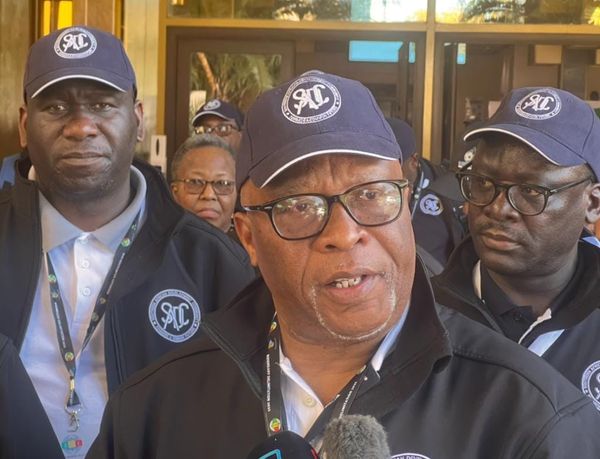The African Union (AU), Common Market for Eastern and Southern Africa (COMESA) and Southern Africa Development Community (SADC) elections observer missions have discredited Zimbabwe’s ongoing elections citing that the plebiscite “fell short of the requirements of the Constitution of Zimbabwe.”
The observer mission, through Nevers Mumba as SADC Elections Observer Head, issued a bold preliminary preliminary report on Friday morning in Harare accusing the Zimbabwe Electoral Commission (ZEC) of breaching the Constitution through through a controversial delimitation exercise and failure to be transparent about the voters’ roll among other concerns.
The mission, however, admitted that the electoral environment is still calm and peaceful.
“The mission observed that the pre-election and voting phases of the 23-24 Aug harmonised election were peaceful and calm. However, the mission noted that some aspects of the harmonised elections fell short of the requirements of the Constitution of Zimbabwe, the Electoral Act and SADC principles governing democratic elections,” Mumba said.
SADC noted that the delimitation was a flawed and unconstitutionally executed process, ZEC failed ro release the Voters Roll on time for candidates to audit, and the fee charged for the voters’ roll was restrictive to candidates.
The regional observers also established that CCC Rallies were disrupted by the Police thereby denying citizens their right to freedom of assembly and that the Patriotic Bill is unconstitutional as it attacks Freedom of Speech.
SADC also slammed authorities for blocking former cabinet minister Saviour Kasukuwere from contesting against President Emmerson Mnangagwa.
The former Zanu-PF political commissar’s candidature was nullified by the High Court on the basis that he was out of the country for more than 18 months.
SADC, however, believes that Kasukuwere’s disqualification was unconstitutional.
Thy further pointed out that the nomination fees were restrictive (from US$1000 to US$20 000)
Against this background, SADC concluded that the election fell short of expectations and standards of Zimbabwe’s Constitution and the regional body.

